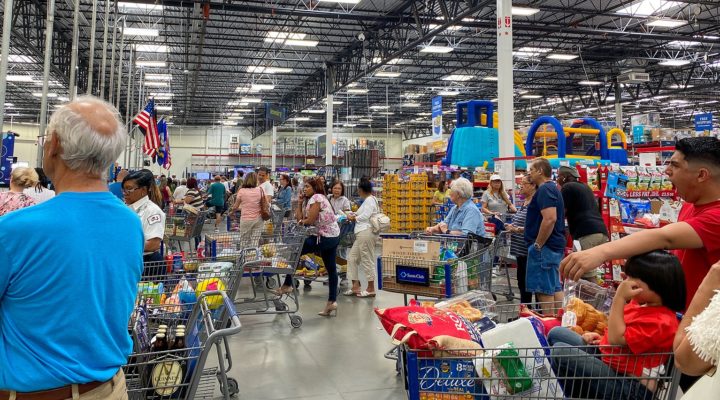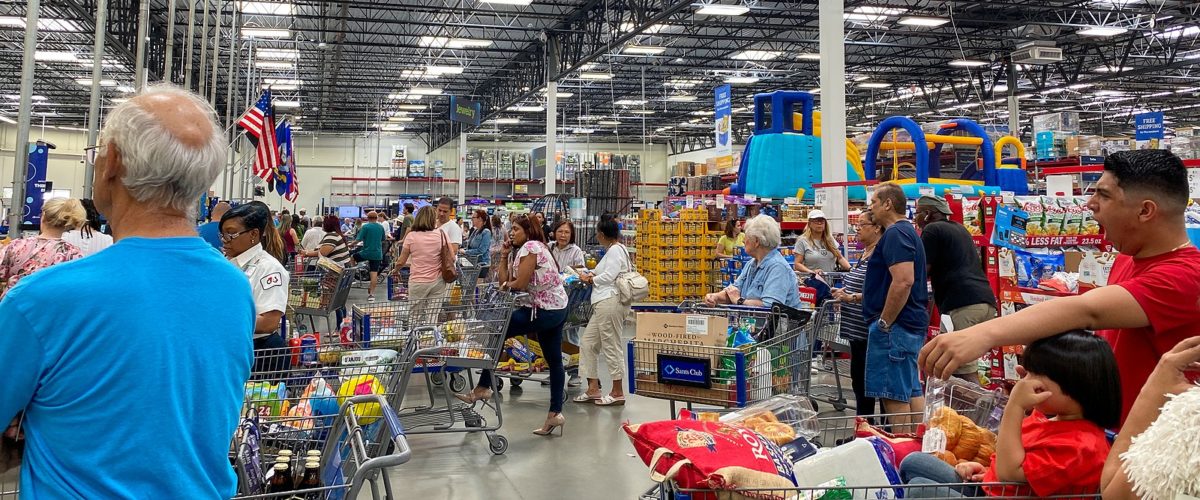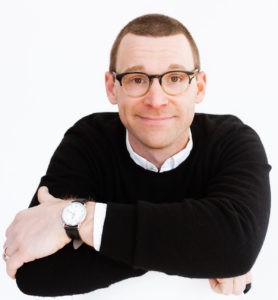Several years ago — at a stuffy denominational gathering with bad ballroom catering where the chicken breasts all tasted like PowerPoint presentations — a progressive pastor admitted to me the church where he works wouldn’t be “open and affirming” to LGBTQ individuals and families “if our wealthiest members weren’t supportive of their full inclusion.”
About five years before this confession, a far more conservative pastor at a far more conservative denominational gathering — with inarguably better catering — guiltily disclosed if his “diaconate, personnel committee or congregation found out what I really believe about politics or the afterlife, they’d fire me on the spot, and I can’t risk that, because I’m only a few years from retirement.”
What’s interesting about these two experiences isn’t that they happened, but rather how frequently acceptable they were — and still are — in my former profession. You see, I used to be a Baptist pastor. And one of the great unspoken truths in the long tradition of Baptist pastoring, which I was introduced to in my mid- to late-twenties, is your son’s health insurance is dependent upon how closely your prayers, beliefs and biblical interpretations adhere to the rules, rites and rigors of American capitalism.
Because, as my two pastor friends from completely opposite ends of the theological and political spectrum remind us, “if our wealthiest members weren’t supportive …,” then nothing gets done.
‘A visceral emotional response’
Now, whenever I cast aspersions on capitalism (or “late capitalism” or “American-style capitalism”) out loud, most people have a visceral emotional response. Typically, these might come in the form of a confused stare, a sudden change in the subject, or an overwhelmingly angry or defensive rebuttal about the dangers of “socialism.”
This feedback could have something to do with how off-putting it is to hear someone accuse you of “being controlled” or influenced by something most of us rarely consider — like the economy! It isn’t hard to imagine you imagining me in a tin-foil hat at dinner parties, where everyone wants me to get back to talking about normal things, like the Jan. 6 insurrection, or school board fights over COVID mitigation, and the dangers of Critical Race Theory like a regular person.
This feedback could have something to do with how off-putting it is to hear someone accuse you of “being controlled” or influenced by something most of us rarely consider — like the economy!
As a psychotherapist, I often am reminded of the pain that can accompany both the naming and the questioning of something a patient previously believed to be as unimpeachable as gravity and air. Sometimes, we don’t really have a way of naming the profundity of what we’re attempting to navigate until we hear someone else say it out loud. Language is funny that way. Over the years, I’ve found that words like “cancer” or “divorce” or “capitalism” have a way of laying bare the cold realities of what many of us actually have been going through, even if we were unaware or unable to admit it to ourselves.
But admit it, we must.
‘Unquestioned American faith’
Otherwise, we run the risk of further internalizing and religiously baptizing the trickle down pain of disappointment, frenetic productivity and violent self-interest parading as a kind of foundational, unquestioned American truth. Unacknowledged, internalized capitalism is like water, in the David Foster Wallace sense of the word. It’s within and around all of us. It’s slippery and takes the shape of whatever it inhabits.
- Be those things progressive mainline or conservative evangelical churches who strongly disagree with one another about almost everything.
- Be those things photos of your children that are now consumable content on social media for people you don’t know, and maybe some you do.
- Be those things your old hobbies and interests that have now become side hustles and gigs.
- Be those things your actual friendships and relationships that have now become part of what we’re all now calling the “metaverse”!?
For such polarized times, this unacknowledged financial orthodoxy holds true, whether you are progressive or conservative, high church or low, liturgical or contemporary, on Twitter or Facebook. Across white Christian theological and denominational traditions in America, I would argue, most of our “right beliefs” have very little to do with effective biblical interpretive practices and much more to do with how American-style, winner-take-all capitalism defines the totality of our world and our relationships within it.
Historically, Americans are a worshipping people. Despite the latest round of Pew data into the waning of our so-called religious preferences, we might be better served by reframing what most of us mean when we say the word “religion” in the first place. Because capitalism is the thing we praise, and bow to, and sacrifice our kids for, and burn ourselves out in service to, and let determine the trajectory of our industry, our access to health care, our self-worth, or — in my case — what constitutes a reimbursable discussion between you and your therapist once a week.
“The capitalist-consumerist ethic is revolutionary. … The new ethic promises paradise on condition that the rich remain greedy and spend their time making more money, and that the masses give free rein to their craving and passions — and buy more and more.”
Conditional ‘paradise’
Historian Yuval Noah Harari sums up our American faith: “The capitalist-consumerist ethic is revolutionary. … The new ethic promises paradise on condition that the rich remain greedy and spend their time making more money, and that the masses give free rein to their craving and passions — and buy more and more. This is the first religion in history whose followers actually do what they are asked to do. How, though, do we know that we’ll really get paradise in return? We’ve seen it on television.”
So what do we do in the face of something that is as ubiquitous as water?
We notice it, and name it, and begin asking all sorts of questions about it.
It’s an exhaustingly tired line to say that the pandemic has “changed things” for American churches trying to keep the lights on, the budget solvent and the pews filled in 2021. It’s even tired-er to pretend to know how best to help a centuries-old institution grappling with its loss of financial, political and socio-cultural security survive what is an inevitable apocalypse. Which is why I’m not going to give you a list of five or 10 aphoristic phrases to explain what “agnostic millennials want most from your sparsely filled fellowship hall.” Spoilers: It’s never “a co-working space with bottomless coffee” and is always “affordable healthcare, childcare and debt forgiveness.”
For far too long, most white Christian institutions in America have found a particularly lucrative market niche by offering what is mostly — as Marx claimed — an anesthetizing opiate, or in words more familiar to us, an overprescribed anti-depressant for the pain of existing under capitalism and bloodthirsty self-interest. What is heaven if not one more T. Rowe Price commercial featuring boomers captaining schooners in the middle of the workday? And what is #blessed if not one more Waco dream kitchen prayerfully wrapped in shiplap?
Two requests
For far too long, most white Christian institutions in America have found a particularly lucrative market niche by offering what is mostly an anesthetizing opiate, or overprescribed anti-depressant for the pain of existing under capitalism and bloodthirsty self-interest.
So, instead of getting better at reducing the side-effects of unacknowledged, internalized capitalism, I would like to give post-pandemic churches two requests: First, provide regular opportunities for people to actually feel and name, out loud and together, the pain of a system that has overseen their abuse as a necessary component to a flourishing bottom line. And second, provide opportunities for all of us to collectively organize and creatively resist the Market God of our crumbling American empire.
Or, if you’re too busy, just try the next three things and see what happens:
- Pay off your congregants’ debts.
- Pay your childcare and custodial staffs a living wage.
- Don’t upgrade the sanctuary sound system or your website and instead use the excess money to do the first two things on this list.
These suggestions might not save your church from insolvency or irrelevancy. If you’re a pastor, they might not help you limp into retirement before the congregation finds out you don’t know what Critical Race Theory is and/or sometimes give to NPR during the annual pledge drive.
They might not even work. But at this point, that’s not really important anymore, because our anxiety and depression and burnout are letting all of us know that most of our over-worked populace no longer finds it compelling or helpful to believe in a God who only solves our problems once we are dead.
Therapeutically speaking, that kind of faith sounds suicidal. Perhaps that’s why it’s dying.
Eric Minton is a writer, ordained Baptist minister and licensed psychotherapist specializing in marriage and family therapy. He has a family therapy practice in Knoxville, Tenn., and provides coaching and consultation for pastors, nonprofit leaders, businesspeople and institutions, helping them foster better ways of living, working and serving together. His first book, It’s Not You, It’s Everything, will be released in May 2022 with Broadleaf Press. Find more of his work at ericminton.me
Related articles
Justice and socialism? A conversation with Sondra Wheeler / Analysis, Jason Koon
https://baptistnews.com/article/jesus-and-socialism-a-conversation-with-sondra-wheeler/#.YYSDci-B30p
The economics of belief: Does morality come down to nothing more than, ‘Can we afford it?’ / Opinion, Eric Minton
https://baptistnews.com/article/economics-belief-morality-come-nothing-can-afford/#.YYSDiS-B30p
Social liberalism grows while economic diversity still dominates / News, Mark Wingfield



